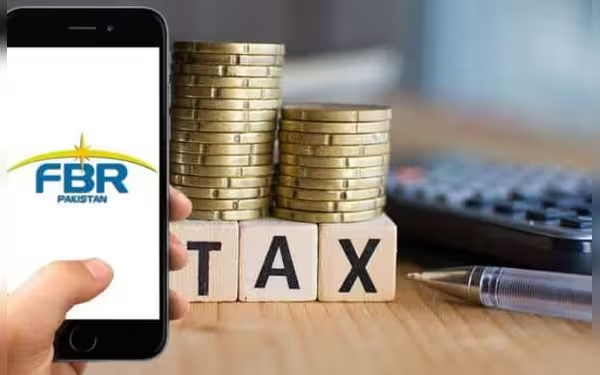Saturday, November 16, 2024 05:47 PM
Restrictions on Non-Filers in Pakistan
- Non-filers face cash withdrawal limit of Rs30 million.
- Ban on purchasing properties and vehicles for non-filers.
- Government aims to enhance tax compliance and revenue.
 Image Credits: en.dailypakistan.com.pk
Image Credits: en.dailypakistan.com.pkPakistan imposes restrictions on non-filers, including cash withdrawal limits and asset purchase bans, to enhance tax compliance and revenue.
In Pakistan, the government has introduced a series of restrictions aimed at non-filers, individuals who do not file their income tax returns. This move is part of a broader strategy to enhance tax compliance and broaden the tax base in the country. Non-filers, who are often seen as a significant portion of the economy, will now face stringent measures that could impact their financial activities significantly.
One of the most notable restrictions is the cash withdrawal limit. Non-filers will be restricted from making annual cash withdrawals exceeding Rs30 million. This means that if you are a non-filer, you will need to be more cautious about your cash transactions, as exceeding this limit could lead to complications with the tax authorities.
Additionally, non-filers will face a ban on purchasing assets such as properties and vehicles. This restriction is particularly significant, as it limits the ability of non-filers to invest in real estate or acquire new vehicles, which are often seen as essential assets for many individuals and families.
The implications of these restrictions are profound. For many, the inability to withdraw large sums of cash or purchase significant assets could lead to a shift in how they manage their finances. It may encourage some individuals to reconsider their tax filing status and comply with the regulations to avoid these limitations.
Moreover, these measures are expected to have a ripple effect on the economy. As non-filers are pushed to either comply with tax regulations or face restrictions, there could be an increase in tax revenue for the government. This additional revenue could potentially be used for public services and infrastructure development, benefiting the broader population.
The restrictions imposed on non-filers in Pakistan are a clear signal from the government about the importance of tax compliance. While these measures may seem harsh, they are designed to create a more equitable financial environment. For individuals who have yet to file their taxes, this could be a wake-up call to take action. Embracing tax compliance not only helps in avoiding restrictions but also contributes to the overall economic health of the nation. It is essential for everyone to understand that being a responsible taxpayer is not just a legal obligation but also a civic duty that can lead to a better future for all.













